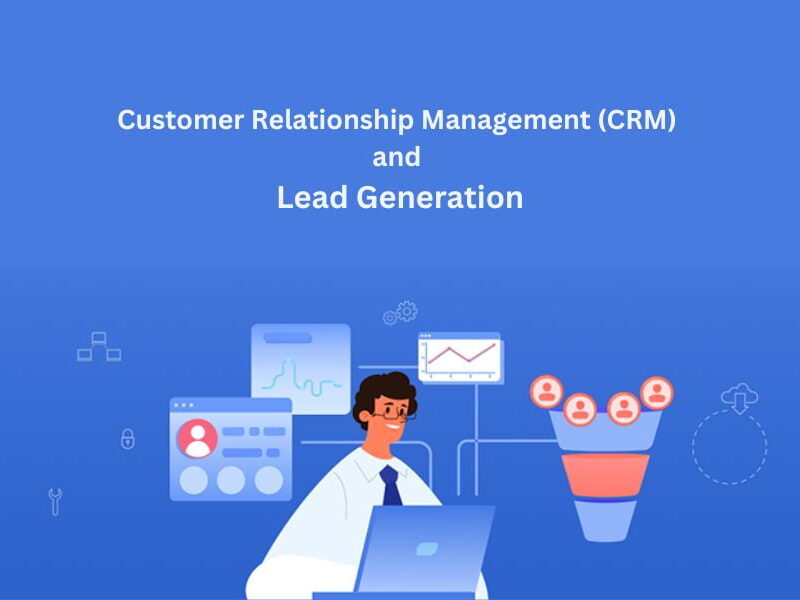In the fast-paced world of e-commerce, customer relationship management (CRM) is more critical than ever. With a myriad of options available, selecting the right CRM can be a daunting task.
This comprehensive guide aims to simplify the decision-making process by highlighting the key features, benefits, and drawbacks of the top CRM solutions tailored for e-commerce businesses.
Whether you are a startup looking to streamline operations or an established retailer aiming to enhance customer engagement, this guide will provide the insights needed to make an informed choice. Discover the best CRM for your e-commerce needs and take your business to the next level.
Key Features to Consider in the Best CRM for E-commerce
When selecting the best CRM for your e-commerce business, it’s crucial to evaluate several key features that can significantly enhance your customer relationship management.
These features include advanced customer segmentation, robust sales automation, comprehensive data analytics, and seamless integration with your existing e-commerce platforms. By focusing on these areas, you can ensure that the CRM you choose will not only streamline your operations but also drive customer satisfaction and loyalty.
Customer Segmentation: Personalizing the E-commerce Experience
Customer segmentation is a vital feature in any e-commerce CRM. It allows you to divide your customer base into distinct groups based on various criteria such as purchase history, demographics, and behavior.
This segmentation enables you to tailor your marketing efforts more effectively, sending personalized emails, offers, and recommendations that are more likely to resonate with each segment. As a result, you can improve customer engagement and drive higher sales.
Sales Automation: Streamlining the Sales Process
Sales automation is another critical feature that can significantly boost the efficiency of your e-commerce operations. Automated workflows can handle routine tasks such as follow-up emails, appointment scheduling, and lead scoring, freeing up your sales team to focus on high-value activities.
Additionally, sales automation can help you track the performance of your sales funnel, identifying bottlenecks and opportunities for improvement, ultimately leading to higher conversion rates and better customer retention.
Data Analytics: Making Informed Decisions
Data analytics is the backbone of any effective CRM system. A robust e-commerce CRM should provide comprehensive analytics tools that allow you to track and analyze customer behavior, purchase patterns, and marketing campaign performance.
By leveraging these insights, you can make data-driven decisions that optimize your marketing strategies, improve customer service, and enhance the overall customer experience. Data analytics also help in predicting future trends, enabling you to stay ahead of the competition.
| Feature | Description | Benefit |
|---|---|---|
| Customer Segmentation | Dividing customers into distinct groups based on various criteria | Personalized marketing efforts, improved customer engagement |
| Sales Automation | Automating routine sales tasks and workflows | Increased efficiency, higher conversion rates, better customer retention |
| Data Analytics | Comprehensive tools for tracking and analyzing customer data | Data-driven decisions, optimized marketing strategies, enhanced customer experience |
Which type of CRM technique is best for ecommerce companies?
The best type of CRM technique for ecommerce companies is a Customer Relationship Management (CRM) system that integrates seamlessly with their existing platforms and provides robust customer insight, personalized marketing, and efficient support.
Ecommerce businesses thrive on understanding customer behavior and preferences, and a CRM that can collect, analyze, and leverage this data effectively is crucial. Here are some key aspects to consider:
1. Data Integration and Analytics
A CRM system that integrates well with your ecommerce platform is essential for gathering and analyzing customer data. This integration allows for the collection of detailed information about customer interactions, purchase history, and browsing behavior.
By leveraging this data, businesses can:
– Create detailed customer profiles to understand individual preferences and behaviors.
– Identify trends and patterns in customer purchasing habits to inform inventory and marketing strategies.
– Personalize marketing campaigns to increase engagement and conversion rates.
2. Personalization and Customer Experience
Personalization is a critical component of successful ecommerce CRM strategies. A CRM system that enables personalized experiences can significantly enhance customer satisfaction and loyalty.
Features such as:
– Customized product recommendations based on browsing history and past purchases.
– Tailored email marketing campaigns that address individual customer needs and interests.
– Dynamic content on the website that adapts to each visitor’s browsing behavior and preferences.
3. Omnichannel Support and Engagement
In today’s digital landscape, customers expect seamless and consistent experiences across all channels. An omnichannel CRM system ensures that customer interactions are cohesive and well-coordinated, regardless of the platform.
This includes:
– Unified customer profiles that aggregate data from various touchpoints, such as social media, email, and in-store visits.
– Real-time support through multiple channels, including live chat, social media, and phone.
– Consistent and timely follow-ups to address customer queries and concerns, improving overall customer service.
What is the number 1 CRM in the world?
The number 1 CRM (Customer Relationship Management) in the world is Salesforce. According to various industry reports and market research, Salesforce has consistently been ranked at the top of the CRM market for several years.
It offers a comprehensive suite of tools and services designed to help businesses manage customer interactions, streamline processes, and improve overall customer satisfaction. Salesforce’s robust features, extensive integrations, and large ecosystem of partners and developers make it a leading choice for businesses of all sizes.
Why is Salesforce the Number 1 CRM?
Salesforce has earned its top position in the CRM market due to several key factors. First, it provides a highly customizable platform that can be tailored to meet the unique needs of different industries and business sizes.
Second, Salesforce offers a wide range of modules, including Sales Cloud, Service Cloud, Marketing Cloud, and Commerce Cloud, which cover various aspects of customer relationship management. Third, the company has a strong focus on innovation, consistently adding new features and improvements to its platform.
Additionally, Salesforce’s large community of users and partners provides extensive support and resources, making it easier for businesses to get the most out of the CRM.
Key Features of Salesforce CRM
Salesforce CRM is known for its comprehensive and powerful features. Here are some of the key features that make it the leading CRM solution:
- 360-Degree Customer View: Salesforce provides a unified view of customer data, allowing businesses to see all interactions and touchpoints in one place. This helps in better understanding customer needs and preferences.
- Automated Workflows and Processes: The platform automates routine tasks and workflows, such as lead nurturing, campaign management, and customer service processes. This saves time and reduces the risk of errors.
- Integration Capabilities: Salesforce integrates seamlessly with a wide range of third-party applications and services, including marketing automation tools, e-commerce platforms, and social media channels. This ensures that all customer data is synchronized and up-to-date.
Success Stories and Case Studies
Numerous businesses have achieved significant success by implementing Salesforce CRM. Here are a few notable examples:
- Toyota: Toyota used Salesforce to improve its lead management and customer engagement processes, resulting in increased sales and customer satisfaction.
- Adidas: Adidas leveraged Salesforce to streamline its marketing and sales operations, leading to more effective customer targeting and higher conversion rates.
- T-Mobile: T-Mobile implemented Salesforce to enhance its customer service, reducing wait times and improving overall customer experience.
Frequently Asked Questions
What is a CRM and why is it important for E-commerce?
A CRM (Customer Relationship Management) system is a tool that helps businesses manage customer interactions and data throughout the customer lifecycle. For e-commerce, a CRM is crucial for enhancing customer experiences, streamlining sales processes, and boosting overall business efficiency. It centralizes customer data, enabling better personalization, marketing, and customer service.
How does a CRM system benefit an e-commerce business?
A CRM system benefits e-commerce businesses by improving customer satisfaction, increasing sales, and optimizing operations. It helps in tracking customer interactions, managing marketing campaigns, and providing personalized experiences. By centralizing data, CRMs enable businesses to make informed decisions, reduce customer churn, and enhance customer loyalty.
What features should an e-commerce CRM have?
An e-commerce CRM should have features like customer data management, sales automation, marketing automation, and analytics. It should also integrate seamlessly with e-commerce platforms, payment gateways, and other tools. Key functionalities include customer segmentation, email marketing, customer service tools, and customizable dashboards to provide insights and actionable data.
Which CRM platforms are best suited for e-commerce businesses?
Top CRM platforms for e-commerce businesses include Salesforce, Shopify Plus, HubSpot, and Zoho CRM. These platforms offer robust features tailored to e-commerce needs, such as omnichannel support, advanced analytics, and integration capabilities. They help manage customer data, automate marketing and sales processes, and provide comprehensive insights to drive business growth.


